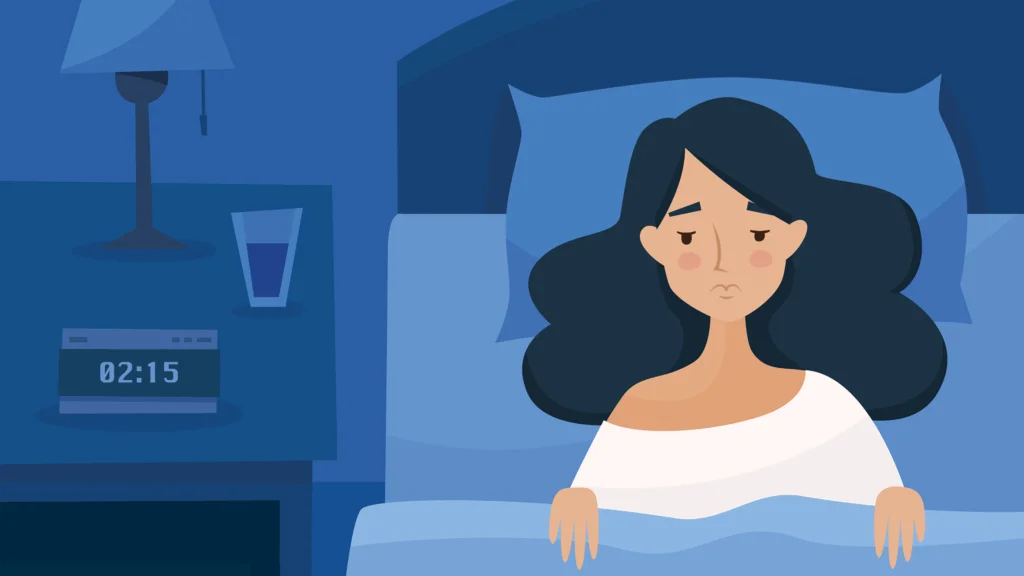Barely a fraction of millions people globally are affected by sleep disorders; thereby disrupting their ability to have a restful night and impinging on their general health and well-being. They can take many forms ranging from failure in falling asleep to abnormal activities during sleep.
Overview
What are sleep disorders?
These are states that disrupt your sleeping patterns or prevent you from having a peaceful night resulting in difficulty in functioning during the day. They could either be acute or chronic while affecting one’s physical, mental and emotional being.
Major Categories of Sleep Disorders
Insomnia
It manifests as difficulty in initiating sleep (onset insomnia), maintaining it (middle or last part insomnia), or waking up too early and then failing to get back to sleep (terminal insomnia). This common condition could be brief, lasting a few days/ weeks; it also could be long-lasting, lasting for months/ years.
Among the causes are stressors like anxiety states, depressive states, poor habits related to sleep, and medications, among others. If not treated properly, chronic insomniacs can find it hard to function daily due to impaired overall health caused by this condition; hence, they should seek help immediately while at the same time adopting healthy practices surrounding bedtime routine.
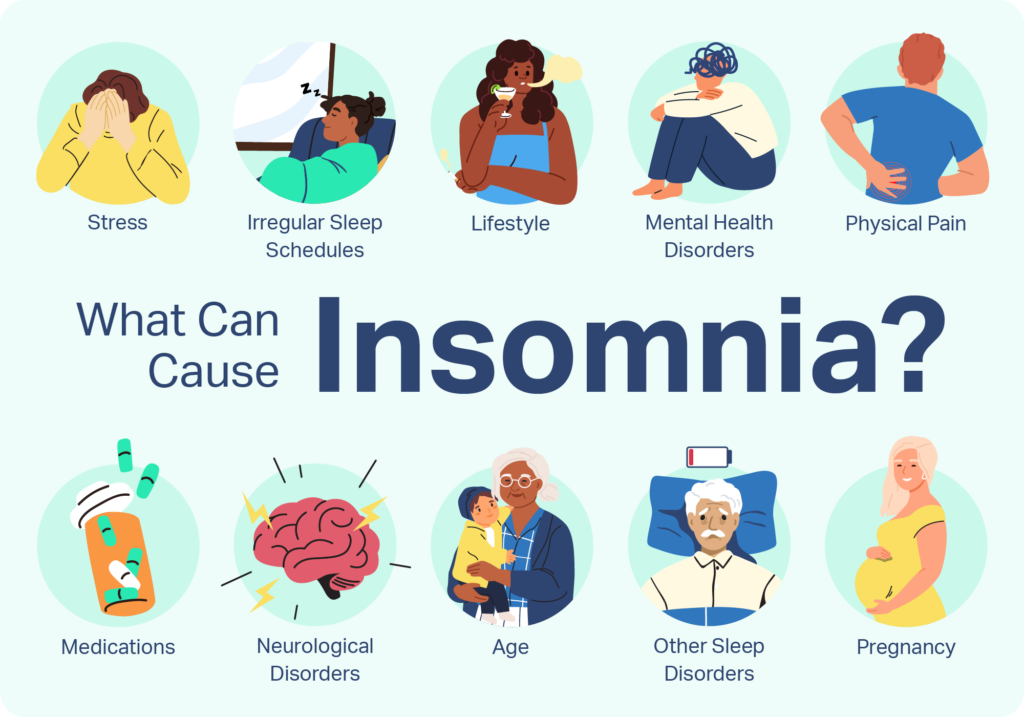
Apnea
Breathing pauses repeatedly interrupt the normal breathing pattern when an individual is asleep. There exist two types: central[where the brain fails to send correct signals controlling respiration muscles] & obstructive [blockage within airways].
Symptoms include loud snoring and choking/gasping observed during night time accompanied by excessive daytime somnolence or tiredness, which needs urgent medical attention since, if left untreated, it can lead to heart attacks among other severe diseases like stroke, high blood pressure, etcetera.
Restless Legs Syndrome (RLS)
Uncontrollable urge move lower limbs usually accompanied by unpleasant sensation. It occurs mostly at evenings or during night hours when one is sitting/ lying down thereby interfering with sleep induction.
The only way to temporarily relieve this condition involves shaking legs, but unfortunately, it may cause sleeping disorders. Although the exact etiology remains unknown, genetic factors, iron deficiency, and various chronic ailments have been linked to restless leg syndrome.
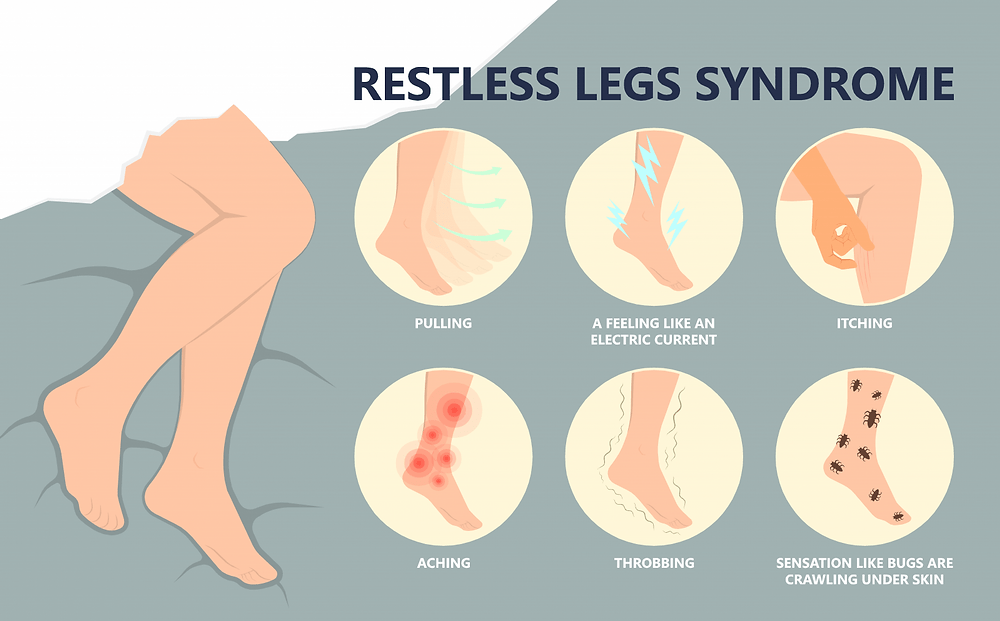
Narcolepsy
A person suffering from narcolepsy experiences excessive daytime sleepiness (EDS) along with recurring episodes of ‘sleep attacks.’ An individual may fall asleep abruptly anywhere, anytime, without prior warning signs, which are indicators for normal sleeping process initiation. Cataplexy – sudden muscle tone loss triggered by intense feelings such as laughing hard also accompanies most cases of narcolepsy, though some do not experience this symptom at all.
Narcoleptic patients’ inability to regulate wakefulness-sleep patterns leads them to have difficulties doing daily activities, thus affecting their quality of life greatly; however, management through treatment methods like drugs or lifestyle changes can help control symptoms associated with the disorder.
Circadian Rhythm Disorders
These happen when there is a mismatch between an individual’s internal clock and external environment. Delayed sleep phase disorder, Advanced sleep phase disorder, and Shift work disorder, among others, belong under this category. People find it difficult to fall asleep at the required times, so they end up being deprived of enough rest, which might result in other health complications related to lack of sleep.
Thus, managing these conditions often involves manipulating bedtimes according to one’s needs, light therapy coupled with good sleep hygiene practices.
Sleep Disturbances
Sleep disturbances are referred to as parasomnias. For example, sleepwalking, night terrors, and REM sleep behavior disorder. They usually occur when a person is changing from one stage of sleep to another and may result in unusual or dangerous activities during sleep.
Any individual can be affected by these disorders regardless of their age group; they are commonly associated with other sleep disorders or neurological conditions that could be brought about by stress factors, among others. Hence, it becomes necessary that treatment includes a medication-based approach combined with behavioral strategies while ensuring a safe sleeping environment.
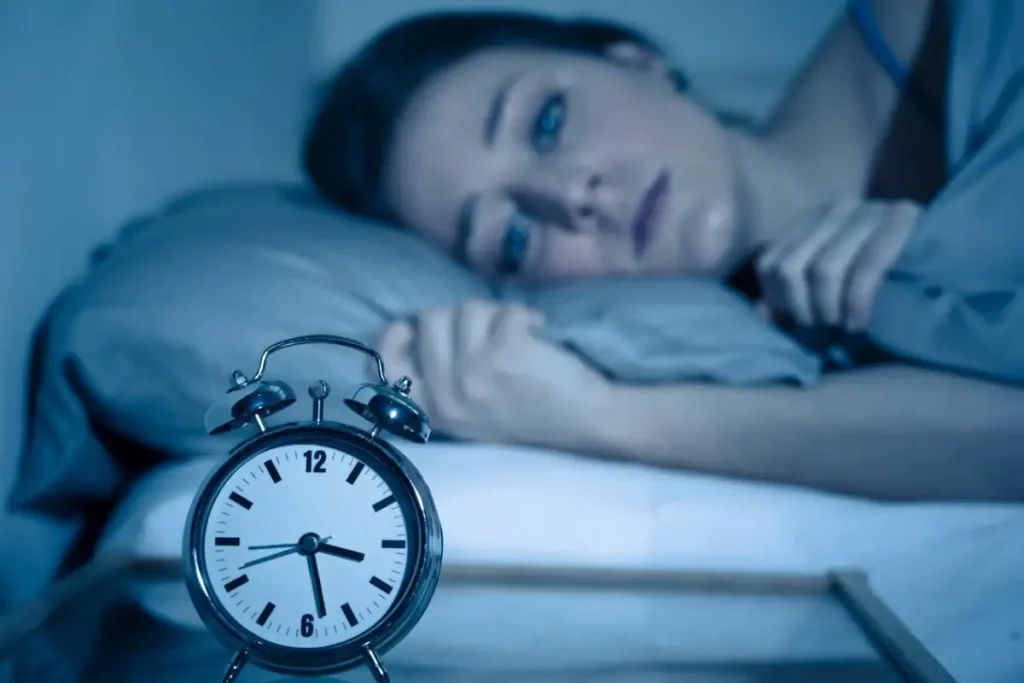
Symptoms
- Finding it hard to initiate sleep while feeling tired: This is one common symptom characterizing most types of sleep disorders, making it difficult for somebody to start their usual night’s rest;
- Frequently waking up at night: If someone frequently wakes up during the night but finds difficulty in falling back asleep again, then such a condition greatly affects the overall quality of his/her slumber time;
- Daytime fatigue: Excessive daytime sleepiness coupled with lack of energy often points out towards poor quality or insufficient amount;
- Loss in concentration: Inability to concentrate on things around coupled with poor memory can be attributed to not getting deep restorative nocturnal periods, leading to this problem during daytime hours;
- Mood swings: Lack of continuous enough amounts over prolonged periods may result in increased irritability levels as well as development of anxiety states, even depression.
Causes
- Stress and Anxiety: High levels of stress or anxiety can disrupt sleep patterns, making it hard for one to relax enough so as to fall asleep or stay asleep.
- Poor Sleep Habits:Irregular sleep schedules; excessive screen time prior bedtime; consumption caffeine late into evening hours etc., negatively affect quality of sleep.
- Medical Conditions: Chronic ailments like asthma, arthritis, heart diseases, etc., interfere with sleeping due to discomfort caused by them directly interfering with organs required to maintain this state; they need frequent waking up during the night, among other reasons.
- Medications: Some drugs have side effects that alter normal pattern(s), thus causing difficulties in sustained staying through the entire night (insomnia).
- Environmental Factors: Noise pollution; excessive light exposure, especially blue lights emitted from electronic devices such as smartphones and tablets, among others used close face just before going to bed; uncomfortable bedding materials where a person sleeps on them without turning over regularly.
Risk Factors of Sleep Problems
- Age: Sleep disorders can affect people at any age, but they are more likely to happen as individuals grow older due to changes in health and sleep patterns.
- Sex: Certain sleep problems, such as insomnia, are more common among women, especially during pregnancy, menopause, and menstrual cycles.
- Family Background: The presence of a family history of sleep disorders may increase the chances of having similar conditions due to genetic predispositions and shared environmental factors.
- Lifestyle Choices:Sleep disorders can be caused by irregular sleeping hours; high consumption of caffeine; lack of exercise.
- Mental health and stress levels: Being highly stressed or anxious can interfere with falling asleep and staying asleep, hence acting as significant risk factors for depression, too.
- Medical conditions: There are several chronic illnesses like heart diseases that affect the quality of sleep, ultimately leading to other forms known as sleep apnea, among others.
- Use substances: Alcohol use disorder is one way through which nicotine or any recreational drug abuse may disrupt normal sleeping patterns while increasing vulnerability towards the development of these disorders.
What happens if I don’t get enough rest?
Sleep deprivation has far-reaching effects on both physical health and mental well-being. It impairs cognitive function, making it difficult to concentrate, remember things, or make decisions; causes mood swings/irritability; heightens stress levels; increases anxiety, even triggering episodes of depression, besides weakening the immune system, thus exposing one to frequent infections.
Prolonged lack thereof is also associated with cardiovascular diseases such as hypertension (high blood pressure), diabetes mellitus type two (non-insulin-dependent diabetes), myocardial infarction, etcetera.
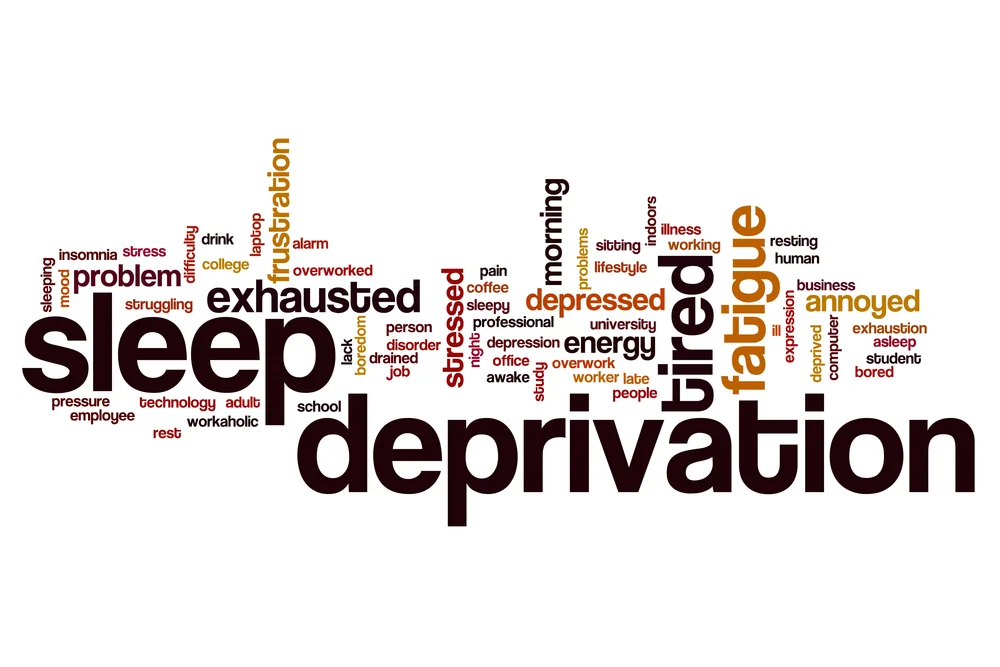
Diagnosis & Tests
How do doctors diagnose sleep disorders?
The diagnosis process for sleep disturbances usually involves looking at a person’s medical background, conducting physical examinations, and sometimes ordering specialized tests. Here is what normally happens when diagnosing these conditions:
- History taking & symptom review: The first step in finding out more about your sleep patterns, lifestyle choices, and any related problems is to ask yourself questions concerning such issues. They may also need to know how healthy you are generally, plus whether there are any medications being taken or stressors affecting nighttime rest.
- Sleep diary: You might be given a booklet where to record all activities done while awake as well as sleep duration over two weeks’ time span. This includes bedtimes, wake times and number of awakenings throughout each night which can be used to detect trends.
- Physical examination:A thorough checkup may be necessary in order rule other medical conditions that could contribute towards poor quality rest.
- Sleep studies: Some complex cases require additional monitoring hence your physician might suggest having polysomnography (PSG) performed at either hospital or home setting using portable devices which measure brain waves among other things during slumber hours.
- Actigraphy: In certain instances, instead of PSG, individuals wear actigraphs resembling wristwatches, which record movement statuses indicative of light vs dark periods per day, thereby aiding diagnosis, especially when dealing with circadian rhythm disorders like delayed phase syndrome
How can I sleep better?
Ways through which your sleep can improve involve adopting habits and creating an environment that will promote better recuperative, peaceful, restful, and refreshing sleep. The following are practical strategies on how to boost your sleeping quality:
- Set a regular time for sleeping: Always go to bed and wake up at the same time every single day without fail, including weekends, because maintaining consistency helps your body’s biological clock work well.
- Create a Relaxing Bedtime Routine: Have a routine before going to bed which could entail reading, taking warm showers or practicing relaxation techniques among other things so as not fall prey of stimulating activities like watching TV or using electronic devices prior to bedtime.
- Sleep-friendly Bedroom Environment: Darkening and cooling down your room makes it good enough for you to get deep slumber. Buy yourself a comfortable mattress with pillows that suit your ideal sleep position.
- Avoid screens particularly before bed: The blue light emitted from phones, tablets and computers can disrupt how fast you fall asleep; try not using them at least one hour before turning off the lights or use blue light filters on these gadgets.
What shouldn’t I do if I want better sleep?
- Caffeine and Nicotine: Stay away from consuming these stimulants prior to bedtime as they may interfere with initiation as well as maintenance of sleep.
- Heavy Meals and Alcohol: Don’t eat large meals or drink alcohol shortly before retiring since this will disturb your normal sleeping patterns, causing discomfort.
- Electronic Devices:Avoid screens on phones, tablets, computers at least an hour ahead of retiring in order to lessen exposure of blue lights which impede melatonin production.
- Irregular Sleep Schedule: Change in one’s timing routine by wide margin for both wakefulness stages can affect own internal time piece hence avoidable loss of regularity in sleep.
- Stimulating Activities: Avoid intense physical exercises and other things that make your mind very alert just before you go to bed, as they may make it hard to fall asleep.
What will healthcare providers ask during sleep disorder exams?
• How many hours a night do you usually sleep?
• Do you have difficulty falling or staying asleep?
• Do you wake up feeling refreshed?
• Do you snore or have breathing problems while sleeping?
Conclusion
The treatment for sleep disorders starts with understanding them so that appropriate measures may be taken towards improving quality of life. This means one has to be keen enough about their earliest signs, hence ensuring timely diagnosis is done together with getting necessary interventions.
It’s also important that individuals adopt good sleeping habits into their lives because this alone can greatly help manage such conditions. Other than that, people should incorporate lifestyle changes like regular physical exercises into their daily routines as well as stress management techniques because these are known to improve overall health status, including bettering the quality of restful nights’ slumber.
FAQs
What are the most common sleep disorders?
Insomnia tops the list among other common types, such as obstructive apnea syndrome, which occurs when breathing stops intermittently while the person is still conscious; restless leg syndrome, where legs jerk uncontrollably during rest periods, making someone feel uncomfortable, thus hindering him/her from falling asleep easily. Narcolepsy is another type whereby a person experiences frequent sudden attacks of deep sleep regardless of place/time, i.e., even while working or driving.
Can sleep disorders be cured?
Most sleep disorders can be treated effectively managed but there are some that requires continuous treatment as well adaptation lifestyle changes for example obstructive apnea syndrome may necessitate use breathing devices during night hours; However majority responds positively once appropriate interventions are taken in time.
How does lack of sleep affect mental health?
Chronic deprivation has been associated with the development of various problems, including depression, anxiety, and cognitive impairments, among others. This is because brain cells need enough rest between activities in order to function optimally; thus, if this fails, then the person may start experiencing psychological difficulties.
Is it necessary to see a doctor for sleep problems?
If despite making adjustments sleeping patterns still persist, it’s advisable consult healthcare provider so that proper diagnosis can done followed by right treatment plan being implemented.
What changes in the way of life can make sleep better?
Sleeping at a consistent time, making a room comfortable for sleeping, staying away from stimulants before going to bed and learning relaxation methods are among the ways that can help improve sleep.

Russell F. Jones, holding a Master in psychology from the University of Florida. He writes for Smart Parent Solutions, offering practical advice on parenting and child development. His engaging content helps parents navigate family life with confidence and ease. Russell enjoys sharing his knowledge and spending quality time with his family.
